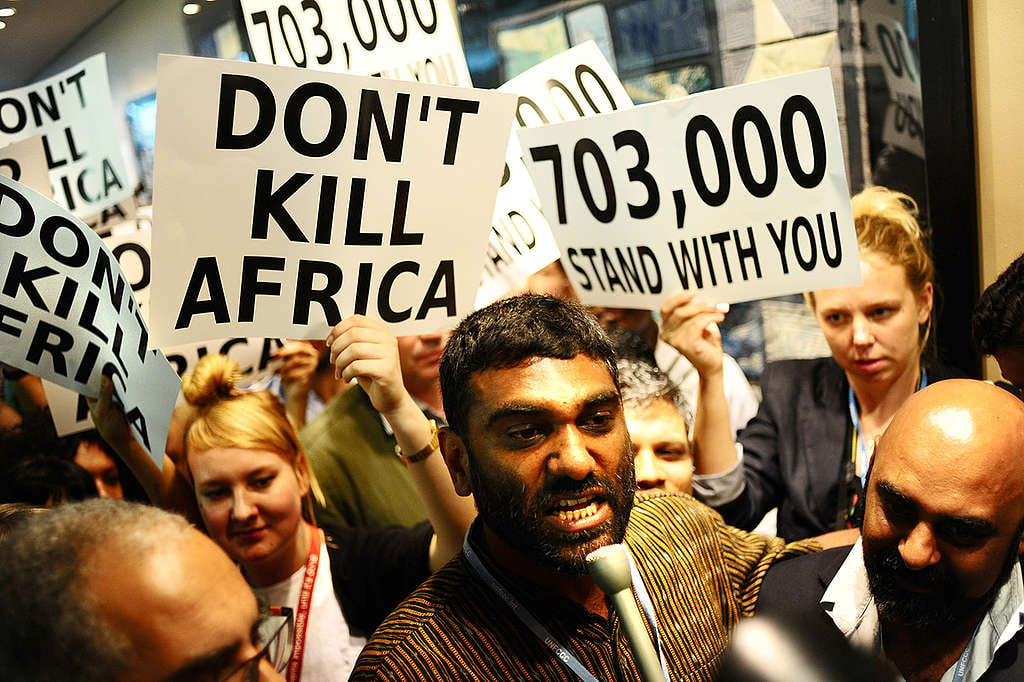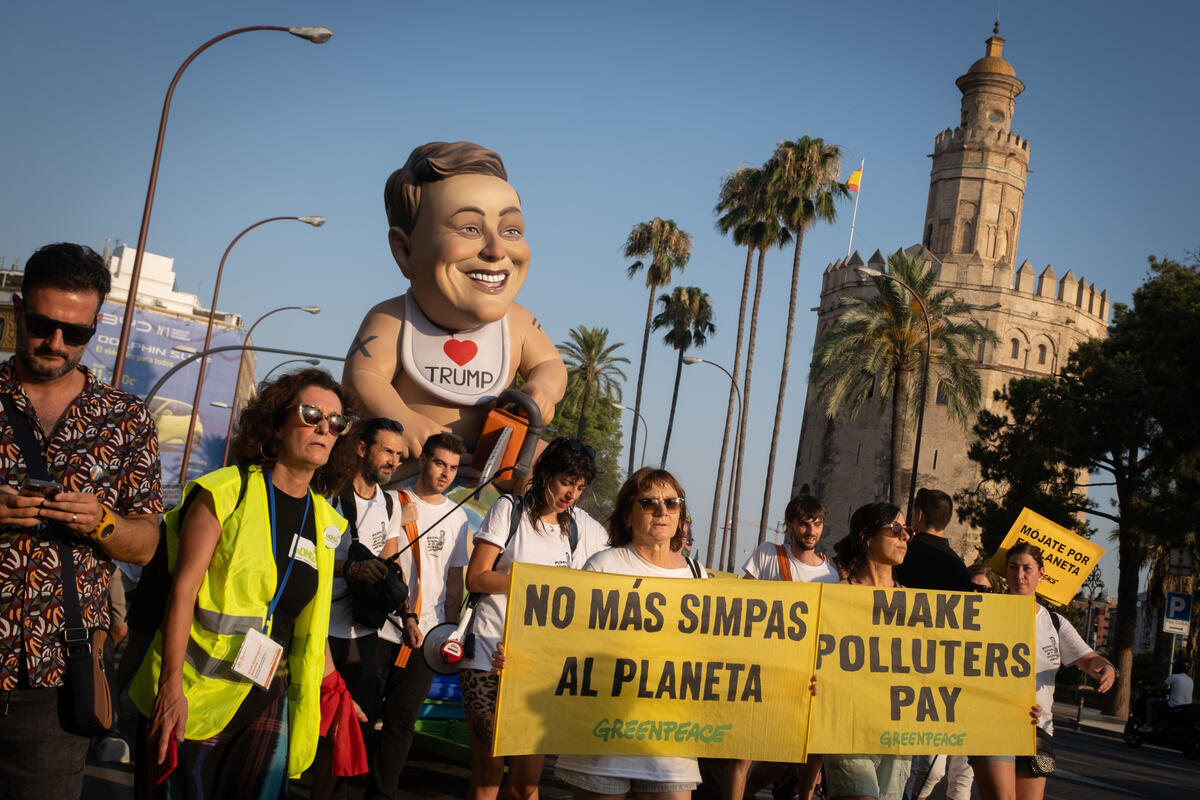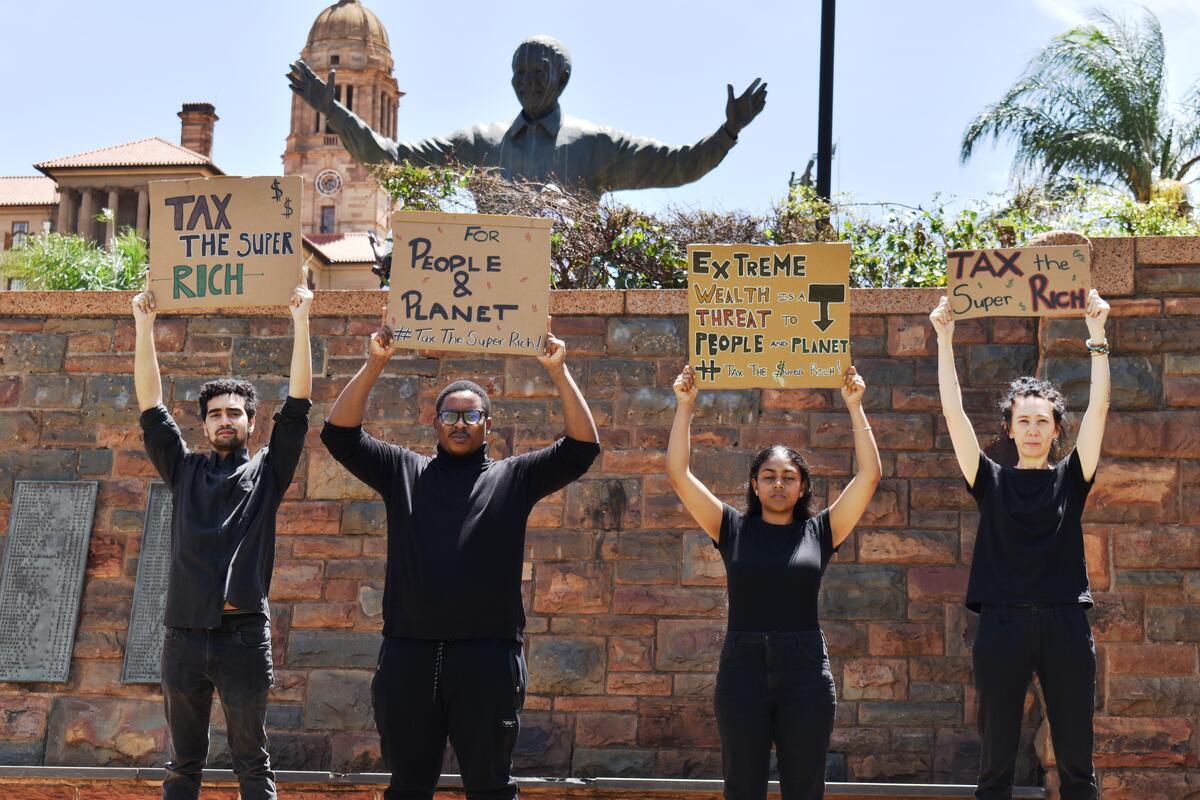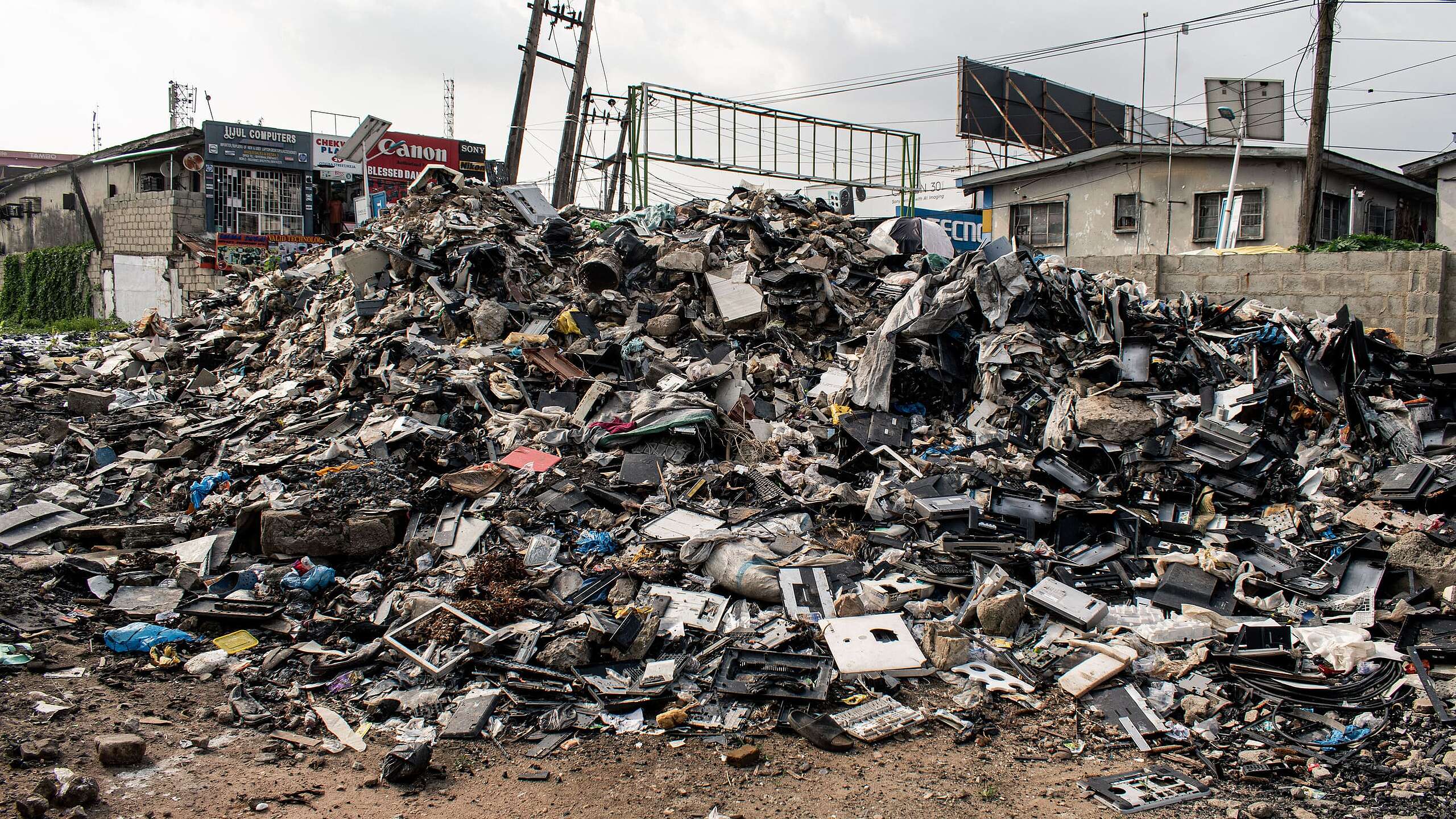eMbalenhle township, settled in the coalfields of Mpumalanga province, was established in the 70s while the neighbouring Secunda was being developed by Sasol at the same time. The people living there have always lived with the view of Sasol’s Secunda synfuels plant, and the wind has always carried the plant’s fumes into the township, bringing a range of health impacts with them, including chronic asthma and premature death.
These are the people over whom Sasol has always chosen its profits. These are their stories.
Sharon Mbonani
Sharon Mbonani was born in Secunda, and here she greets Greenpeace Africa at the entrance to her home in eMbalenhle. She is an activist who is active in community meetings, and she believes in the strength of community activism, even though local civil society organisations do not have sufficient support. She has educated herself on environmental activism, and on issues that hang over eMbalenhle, including air pollution.
Loss has touched Sharon’s life and her activism deeply. Her family has been plagued with health issues related to air pollution, and she believes that they are a consequence of Sasol’s operations in the area. Her living aunt suffers from asthma and her grandparents died from cancer. She also carries the loss of her child who was born prematurely – a known health impact in heavily polluted areas.
Thayi Myeni
Thayi Myeni, a traditional healer, speaks with people in front of his stock of remedies on a main road in eMbalenhle. He has lived in eMbalenhle since before the township was established. People with asthma and other respiratory problems approach him for help. He has noticed that more people have developed asthma since Sasol began its operations in the area; healthy people move there and develop it quickly. He strongly believes that there is a link between the increased incidence of these ailments and the existence of Sasol.
Thayi strongly believes that traditional remedies can assist people with respiratory illnesses, having recommended steaming medication and drinking herbs to reduce breathing difficulties in people who approach him with complaints of breathing difficulties. He also believes that local and national government could be doing much more to assist people who are affected by heavily polluting industries like Sasol.
Fano Sibanyoni
Fano Sibanyoni stands in front of his home in eMbalenhle. He suffers from regular migraines, his eyes are constantly itching and red, and he lives on medication to cope with his symptoms. He wasn’t aware that these could be side effects of living in Secunda until he began to research the impacts of living near operations such as Sasol’s Secunda plant. A relentless activist, he maintains that he remains committed to his community activism because he believes in justice, despite being unemployed.
He engages with the municipality, Sasol and with other companies in the industry’s supply chain such as FFS Refiners in eMbalenhle who supply Sasol. He strongly believes in engaging with these entities, and coordinates community engagement with other towns with the goal of creating a coordinated effort to put pressure on the municipality to take action. He maintains that, while business has its place in society, it must always put the wellbeing of people first.
Johannes Khosana
Johannes Khosana, seated in his home, speaks about his health complications he experienced when he was employed by Sasol. While working in chemical storage containers cleaning up chemical residue, he experienced suffocation due to the fumes in the container. This happened despite the protective gear that he wore. He once fainted; he was not the first.
When Sasol employees experience side effects such as these, they consult with doctors appointed by Sasol. The doctors, Johannes says, always ask: did you burn coal in the house where you grew up? It is a standard question for Sasol employees during health checks, and the answers are often “yes.” With an affirmative response, the doctors chalk up the symptoms as historical, not occupational, and patients such as Johannes are sent on their way.
Johannes once attempted to see a private doctor for an independent health assessment, knowing that Sasol’s appointed doctors would not implicate Sasol, but was prevented from doing so. He was employed in the mining sector after leaving Sasol, but was released because of his health. He remains unemployed.
Khehla Mahlangu
Khehla Mahlangu stands like a sentinel in front of his home in eMbalenhle. When heavy winds pick up and carry the fumes from Sasol’s plant into the eMbalenhle air, his constant migraine worsens. He can smell it in the air. He is dependent on pain medication, without which the headache becomes unbearable. He lives with relatives, including his youngest son, and rents out outside rooms for extra income which are occupied by mineworkers and Sasol employees.
Despite constant pain, community activism is Khehla’s daily bread. He is not afraid of challenging authority, from local to national government as well as businesses like Sasol. He understands eMbalenhle’s issues well which he attributes to his age. He believes the asthma and other respiratory issues endemic to the area are strongly related to Sasol’s operations. His goal is to challenge Sasol and the local municipality for not reporting accurately on air pollution levels and for not having any meaningful community engagement.
Pastor Mahlangu
People gather at Pastor Mahlangu’s church every Thursday for counselling and training sessions. In this workshop, Pastor Mahlangu, on the right in the striped shirt, is training church volunteers to assist residents of eMbalenhle who have lost their vision in navigating with a white cane. None of the community members he works with were born blind.
Pastor Mahlangu was born in kwaMhlanga is Northern Mpumalanga. He worked as a teacher before transitioning into finance and working as a municipal officer, eventually finding himself moving to Secunda with his daughter. She developed asthma soon after settling in Secunda, and her condition was serious from the outset. The cause, according to the doctor he consulted, was the air quality in Secunda, and the doctor’s recommendation was to remove the child from the area. Pastor Mahlangu’s daughter’s asthma subsided as soon as she returned to kwaMhlanga.
Pastor Mahlangu strongly believes in social responsibility and justice, and he preaches to his congregation that authorities must be held accountable for their actions, or their lack of action. In Secunda, he believes that Sasol is not acting ethically, and the municipality is equally unethical in their lack of action towards holding polluters accountable. He strongly regards himself as a social activist, and works to challenge the municipality and Sasol to do the right thing, reaching out to businesses and other institutions to help his community.
A local farmer’s cattle graze with Secunda’s synfuels plant looming in the background. Smoke towers out of the stacks and inevitably is blown into the township.
The fossil fuel industry is toxic. Sasol’s operations in Secunda are toxic. Big polluters have historically put profit over people, and have held surrounding communities hostage with the ultimately unfulfilled promises of economic development and gainful employment. It’s clear what they provide in their place: constant headaches, employment-blocking poor health, and grief.
Send us a message/voice note on WhatsApp and tell Barbara Creecy to make polluters comply with air quality standards >> https://act.gp/2W0wtcZ





Discussion
Quite an impressing idea when young Africans can stand for Africa with a common aim at saving our own livelihood. this is indeed a fight worth fighting until a mountain is moved and the whole world is enlightened that we have a future to protect and a life to live. I join the fight against environmental pollution and so the like minded fellows should fight to the end. soon we shall have an environment free from pollution.
Thank you for your support. We need to all play our part in protecting our fragile planet.